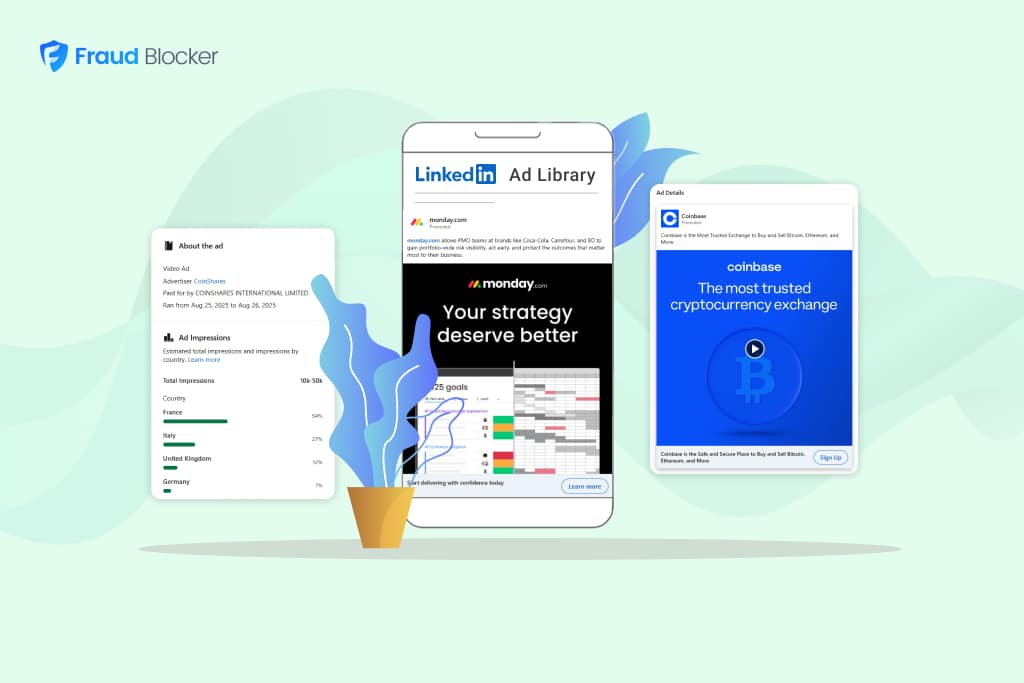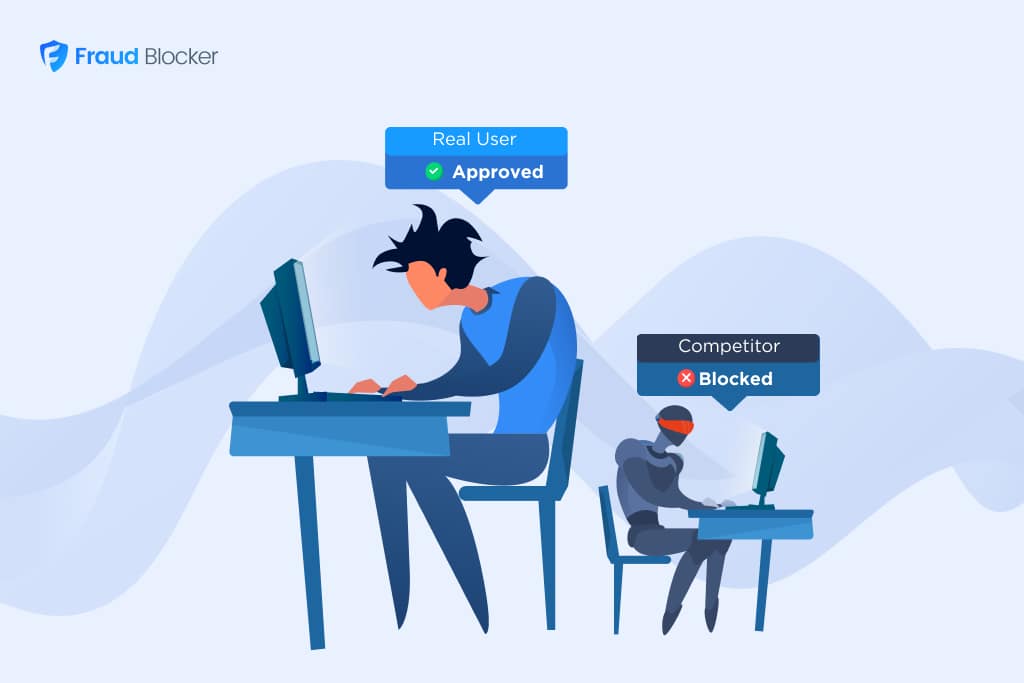
NEW New feature: Verify & block fake emails

We improve your ad performance by blocking click fraud and fake emails

Click fraud is costing advertisers billions in loses. Learn more here.

Click fraud is costing advertisers billions in loses. Learn more here.

Pay-per-click (PPC) advertising is based on competition.
You bid on keywords and phrases that will connect inbound leads to your content and sales copy, and your competitors bid on most of the same terms. You compete with many other businesses and your goal you want to get your best cost-per-click and conversion rates.
But so do your business competitors. And sometimes businesses turn to underhand tactics to get the upper hand – which can involve clicking on your ads until your budget is exhausted, or you fall off the top spot. This is a process known as click fraud, a type of ad fraud that is prevalent in online advertising, and yes, it is a commonplace occurrence.
But how can you tell if you have competitors clicking on Google Ads? And, more to the point, what can you do to stop them?
YES. Competitor click fraud is a reality.
It might be that your local business rivals make a habit of clicking your Google Ads manually whenever they see them, or it might be an organized campaign to sap your advertising budget by using tools such as outsourced click farms or bots.
We especially hear this from our clients in the home services space such as local plumbers, lock smiths, electicians and others. They are highly competitive industries that often use these tactics to help boost their own exposure.
Some sources suggest that about 17% of fraudulent clicks come from competitors clicking on Google Ads. Bot traffic is by far a bigger source of invalid clicks, but that’s not to say that stopping competitors clicking on your ads is the least of your worries.
When you consider that many of the most expensive keywords can be way in excess of $100 (sometimes much more according to our expensive keywords list), it makes sense to do everything possible to reduce your exposure to fraud in your PPC campaigns.
Here are 3 main ways competitors can click on your ads:
The options to protect your Google Ads campaigns from competitor click fraud and other types of ad fraud range from the free but fiddly, to the paid and more effective. These methods are essential for safeguarding your PPC campaigns from budget-draining clicks and ensuring higher ROAS. Here are the best ways to check and block those invalid clicks.
Geotargeting is the easiest option, but it’s also the least effective. First, you need to know where your competitor’s office is located. You can find this by searching their website, particularly the Contact page, or Googling their corporate information. You’ll then focus your geotargeting efforts on their location.
Exclude the selected business’s city from your geotargeting settings. Once done, your ad won’t show up for any users in that area, even the ones who are members of your target audience. If your service area requirements conflict with such an exclusion, consider moving on to a different ad-hiding option.
Geotargeting can be done in just a few minutes, and you don’t have to be an ad specialist or IT wizard to do it. The downsides are that it limits your exposure to your valid audience, and it’s not always as effective as you’d hope. Do a risk/reward analysis to decide if this is the right option for your business.
IP exclusions are like geotargeting exclusions, except they exclude specific IP addresses instead of entire cities or regions. This is advantageous because you don’t forego your entire audience in your competitor’s location. It’s more effective than the first option in blocking specific users who are messing with your ads.
Google allows you to input IP addresses that you don’t want your ad served to. All you have to do is identify your competitor’s IP address, enter it into the appropriate space in your settings, and you’re done. Now you’re wondering how you can get your competitor’s IP address or what will happen if they start accessing your ads from a different location.
To the first question, you can email someone in the corporate team and record the outgoing IP address from the reply. The IP you get might be theirs, or it might be the email providers, but you can exclude it either way. Next, you can check your website server logs and match site visits to your competitor’s corporate location.
This can take some time and is not very precise. If there are many visits from the same address in your competitor’s city, there’s a good chance it’s them. Be aware, however, that you might be blocking a loyal customer. Still, you’re blocking fewer customers than you would in option one. Run another risk/reward analysis and gauge how you feel about this one, or move on to option three.
With Fraud Blocker, you can track the IP addresses of your competitors and prevent them from viewing and clicking your ads.
We also protect against bots, accidental clicks, fake leads and more to help boost your advertising performance on Google and Facebook.
Our software is made for professional marketers and includes top tier support with no obligation to continue after your trial. Don’t run online ads without Fraud Blocker. Try our 7-day free trial today.


